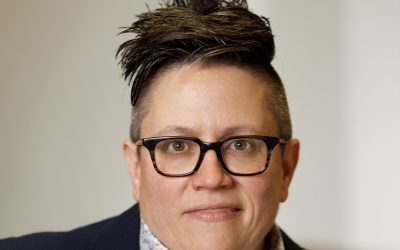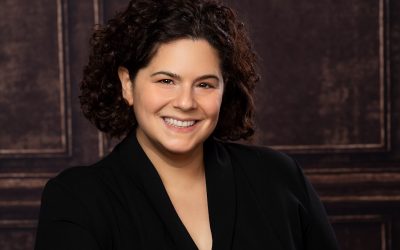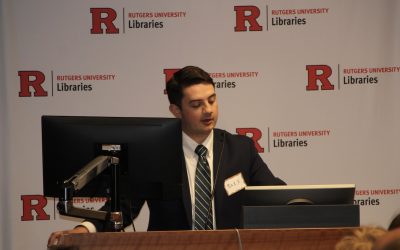The Johns Hopkins professor will use the grant to research, write her third book
May 2021 – Drew University alum Jeanne-Marie Jackson C’06 recently received an Andrew Carnegie Fellowship for her continued study of African literature and intellectual history.
Jackson, an associate professor and director of undergraduate students in the English department at Johns Hopkins University, will use the grant to help write her third book, a biography of the Gold Coast statesman and writer J.E. Casely Hayford, and a teaching edition of one of his novels.
Enlarge

Jackson spoke with us about the fellowship and her time since graduating from Drew.
The Andrew Carnegie Fellowship is an exciting recognition for anyone, in any field, but it’s especially gratifying to receive it as a literary scholar who works mainly on African texts and traditions. The fellowship is important not just for me, but for the literary humanities and for the African humanities in particular. It announces to people far outside these fields that we are doing serious, timely work. It also gives my work more visibility, which will translate, I hope, into a wider readership for the book it is helping to fund.
Academically, I’m proud that I’ve kept up with training in new languages despite the fact that it is very hard to find the time and resources to do so. I learned Afrikaans to advanced proficiency during graduate school, and then studied intensive Shona, a Zimbabwean language, for a few years. These days I am learning a Ghanaian language called Fante for both research and personal reasons. J.E. Casely Hayford, my current book subject, spoke Fante, and it is also my husband’s first language. Language study is a humbling experience, and it’s hard to work up the energy to be endlessly corrected! But I’m always so excited when I’ve had a good lesson (on Zoom, at the moment), and I know that my work and our family life will be richer in different ways for my having persevered.
Drew was my introduction to the world of serious learning. To put it bluntly, I had no idea what I was doing when I went away to college. Neither of my parents had gone to a four-year school, and I did not have the best high school experience. I was flying blind. Drew allowed me the space I needed to find my footing at a difficult time in my home life, while offering me a degree of social intimacy that would have been harder to forge at a larger school.
I was a Russian major, a history minor, and I also took great courses in the German and English departments. I was fully academically prepared—including in language proficiencies—for the PhD program I entered at Yale right after graduating. But I also found the warmth, guidance, and room to experiment and make mistakes that I sorely needed as an undergraduate, and without which I would almost certainly not have built the career I have now.
Drew was my introduction to the world of serious learning...Drew allowed me the space I needed to find my footing at a difficult time in my home life, while offering me a degree of social intimacy that would have been harder to forge at a larger school.
I owe more than I could possibly say here to Carol Ueland, professor emerita of Russian. She recognized my devotion to the subject before I even stepped foot on campus when, as I recall, I sent her some long, rambling emails in self-taught Cyrillic. She and I knew early on that I was interested in pursuing an academic career, and she was determined that I’d be competitive with applicants who had more elite backgrounds than I did. Did I want to study French? Not especially! But Carol made sure I got the exposure I’d need for graduate school. She also hired me as a research assistant so I could see what her job entailed behind the scenes, and helped me participate in an excellent but somewhat off-the-beaten-path study-abroad program in Ukraine. I am lucky to count her as a friend, still, at this point in my life.
I also learned a lot from Frances Bernstein, associate professor of history, who worked with me on an independent study. And Bob Ready, professor emeritus of English, was wonderfully and brutally honest with me about what I needed to do to improve my writing, stripping it of its many affectations to let its ideas rise to the surface.


